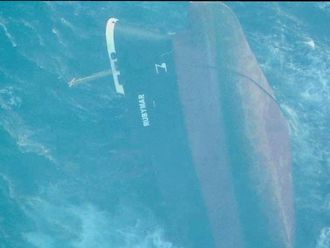Kuwait: Kuwait has decided to send troops to its neighbour Saudi Arabia to resist cross-border attacks by the Yemeni Al Houthi movement, the Kuwaiti daily Al Qabas reported on Tuesday citing an informed source.
Though previously a nominal member of a Saudi-led coalition that has bombed the Iran-allied Al Houthis for nine months, Kuwait has held off sending ground troops.
“Kuwait decided on the participation of its ground forces, represented by an artillery battalion, in operations to strike at positions of Al Houthi aggression against the Kingdom of Saudi Arabia,” the paper said.
The Kuwaiti foreign ministry did not immediately respond to requests for comment.
Mostly Gulf Arab forces intervened in a civil war in Yemen on March 26 after the Al Houthis forced its government into exile and appeared poised to seize the whole country.
The conflict that followed saw Gulf and pro-government ground forces claw back some strategic territory.
Bahrain meanwhile announced on Tuesday that two soldiers attached to the coalition were killed in Saudi Arabia.
Bahrain’s military made the announcement in a statement carried by the state-run Bahrain News Agency. It said Capt. Ahmad Mohammad Amin and Capt. Mubarak Saad Al Rumaihi were killed on Saudi Arabia’s southern border.
The statement does not say when or how the men were killed.
In Yemen’s Taiz governorate, the United Nations health agency delivered more than 100 tonnes of medicines and supplies for 1.2 million people in strife-torn, where over 3 million people, almost 400,000 of them internally displaced, are in dire need of humanitarian aid.
“We are calling on all parties to guarantee unrestricted, long-term delivery of humanitarian aid and unconditional movement of health workers,” the World Health Organisation, WHO, Representative in Yemen, Dr Ahmad Shadoul, said of the supplies, delivered last week, following the announcement of a ceasefire which has only been partially observed.
The aid consists of urgently needed oxygen cylinders, medicines and medical devices, including surgical supplies and equipment for the management of trauma cases, and have been distributed to 13 hospitals and health centres, as well as replenishing the local health department’s stocks for future needs.












